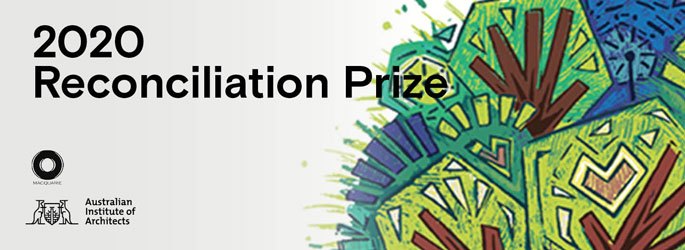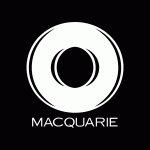
Reconciliation Prize

The Reconciliation Prize seeks to recognise architecture and professional practice in NSW which advances the rights of Aboriginal and Torres Strait people.
The prize shall be awarded to an individual, organisation or collaboration; and seeks to recognise projects, research, practice, or bodies of work which demonstrate one or more of the following qualities:
- An authentic partnership with, and authorisation of, Aboriginal and Torres Strait Islander people
- Responds to traditional custodianship and the cultural practices, knowledge, history and values of Aboriginal and Torres Strait Islander people
- Encourages the training and employment of Aboriginal and Torres Strait Islander people
Please note that the full body of work of an individual or collaboration based in NSW will be considered beyond state borders, please check out the new eligibility criteria (amended on Friday 18 September 2020).
Submissions for the 2020 Reconciliation Prize were open from Monday 27 July and closed at 11:59pm on Tuesday 6 October 2020
The Prize also seeks:
- To increase professional awareness of best practice via an annual key note lecture
- To raise awareness and positively incentivise practices which promote reconciliation
- To recognise the value of Aboriginal and Torres Strait Islander cultural knowledge and its contribution to architecture and professional practice
- To promote initiatives which show leadership on reconciliation from within the architecture profession to attract more Aboriginal and Torres Strait Islander people to consider architecture as a career pathway
Prize
The winning entrant will be awarded a certificate and acknowledged in Institute communications. They will also be invited to deliver a keynote address relating to the awarded work.
Eligibility
The Reconciliation Prize is open to any individual or collaboration that has advanced the recognition of Aboriginal and Torres Strait Islander people in a significant way through the practice of architecture. The winner is not required to be an architect or a member of the institute, however, the project, collaboration and/or individual contribution being acknowledged must be based in or relate to the practice of architecture in NSW, or the individual or collaboration must be based in NSW.
Evaluation Criteria
The appointed jury will evaluate submissions according to how they perform in relation to the following criteria:
- Achieves an authentic partnership with, and authorisation of, Aboriginal and Torres Strait Islander people
- Responds to traditional custodianship and the cultural practices, knowledge, history and values of Aboriginal and Torres Strait Islander people
- Encourages the training and employment of Aboriginal and Torres Strait Islander people
- Has the endorsement of a member of the Aboriginal and/or Torres Strait Islander community it relates to
- Progresses the rights of Aboriginal and/or Torres Strait Islander people within the community it relates to
- Has been undertaken respectfully, has brought positive benefits to the community it relates to, and has considered long term impacts
- Demonstrates scalable and/or replicable learnings, contributing to the broader goal of reconciliation between Aboriginal and non-Aboriginal Australians
In addition to meeting one or more of the criteria above, the entry must demonstrate innovation and/or excellence in the field it relates to (architecture, research, policy, methodology, or practice).
Submission Requirements
Entrants are required to lodge in their application the following:
- A written statement (max 1000 words) describing:
- what the entry project/initiative is
- how the entry demonstrates innovation and/or excellence in the field to which it relates (architecture, research, policy, methodology, or practice)
- how the entry meets each applicable evaluation criteria
- Three to five high resolution images including copyright permission for use in Institute produced and/or Institute-related digital and print publications
- Endorsement of the entry by an Aboriginal and/or Torres Strait Islander community representative, either via written statement and/or offer for verbal reference
Should further clarification of the entry be required, the jury may choose to interview shortlisted candidates.
Jury
Eligible entries must be received by the closing date or the jury may decide not to award a winner. All entries received by the due date will be assessed by a Chapter-specific jury selected by the NSW Chapter. Jury members will comprise the following people:
- the NSW Chapter President or nominated representative from the NSW Reconciliation Working Group
- immediate previous Prize winner, or nominee thereof
- an architect with an Aboriginal and/or Torres Strait islander background
- interstate/international or an allied discipline expert nominated by the Reconciliation Working Group
The Chapter-specific jury will select one (1) winner, however, the jury may choose not to award a winner if they feel the entries received are not of a high enough standard or do not fulfill the judging criteria.
Previous Prize Winners
2019
The University of Sydney | Wingara Mura – Bunga Barrabugu (“thinking path to make tomorrow”) strategy
The University of Sydney Wingara Mura- Bunga Barrabugu Strategy is a visionary, reconciliatory proposition of institutional transformation that activates the design of culturally inclusive and safe physical environments.
The strategy is a unique, exemplary framework for an Australian university setting to celebrate Aboriginal and Torres Islander cultures and values and sets a benchmark for the design of space and place.
Reconciliation Prize Partner:
For more information regarding the Reconciliation Prize, please contact Kat Han, Member Services Officer NSW kat.han@architecture.com.au

